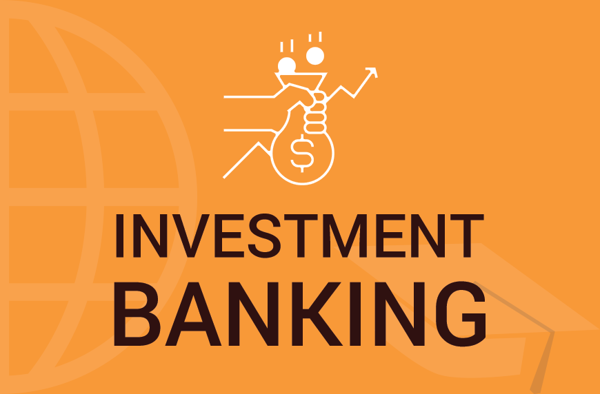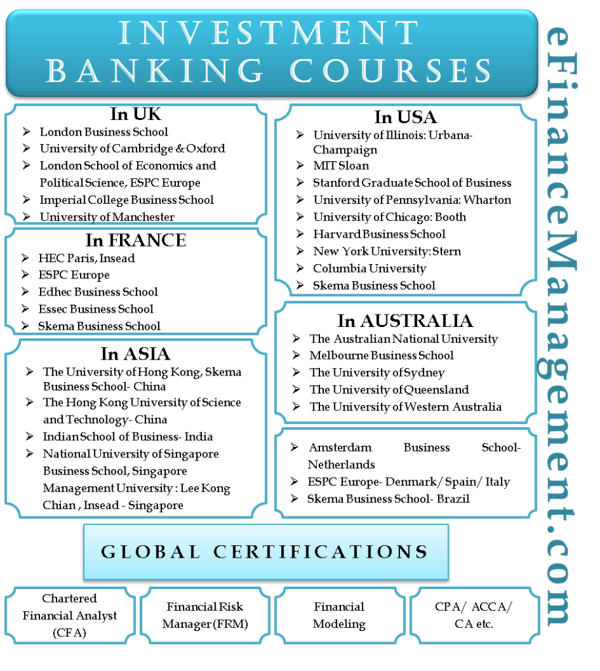Investment banking courses are designed to provide individuals with the knowledge and skills needed to succeed in the competitive world of investment banking. These courses cover a wide range of topics, including financial modeling, valuation techniques, and deal structuring.
Table of Contents
- Financial Modeling
- Valuation Techniques
- Deal Structuring
- Industry Insights
- Networking Tips
- Career Opportunities
- Online Courses
Financial Modeling
Financial modeling is a crucial skill for investment bankers, as it involves creating projections and analyzing the financial performance of companies. Investment banking courses teach students how to build complex financial models using Excel and other software tools.
Valuation Techniques
Valuation techniques are used to determine the worth of a company or asset. Investment banking courses cover various valuation methods, such as discounted cash flow analysis, comparable company analysis, and precedent transactions analysis.
Valuation Techniques in investment banking refer to the methods used to determine the worth of a company or asset. These techniques are crucial for investors, analysts, and bankers to make informed decisions about buying, selling, or investing in a company.
There are several common valuation techniques used in investment banking, including discounted cash flow analysis, comparable company analysis, precedent transactions analysis, and leveraged buyout analysis. Each of these methods has its own advantages and limitations, and they are often used in combination to arrive at a more accurate valuation.
In the What is Investment Banking course, students will learn how to apply these valuation techniques in real-world scenarios. They will gain a deeper understanding of how to analyze financial statements, market trends, and industry dynamics to make sound investment decisions. By the end of the course, students will be able to confidently assess the value of companies and assets, and navigate the complex world of investment banking with confidence.

Deal Structuring
Deal structuring involves arranging the terms and conditions of a transaction to maximize value for all parties involved. Investment banking courses teach students how to negotiate deals, structure mergers and acquisitions, and manage the due diligence process.
Deal structuring is a critical component of investment banking, as it involves the careful planning and arrangement of a financial transaction to meet the needs and objectives of all parties involved. In the context of investment banking, deal structuring is essential for determining the most effective way to finance a merger, acquisition, or other corporate transaction.
During the deal structuring process, investment bankers analyze various factors such as the financial stability of the companies involved, market conditions, regulatory requirements, and tax implications. They then develop a comprehensive plan that outlines the terms of the transaction, including the financing structure, valuation of assets, and distribution of risks and rewards.
Ultimately, deal structuring plays a key role in helping investment bankers create value for their clients and ensure the success of the transaction. By carefully considering all aspects of the deal and developing a strategic plan, investment bankers can help companies achieve their financial goals and maximize returns on their investments.

Industry Insights
Industry insights are essential for investment bankers to understand market trends, competitive dynamics, and regulatory changes. Investment banking courses provide students with in-depth knowledge of different industries, such as healthcare, technology, and energy.
Investment banking is a crucial part of the financial industry, involving raising capital for companies, providing advisory services, and facilitating mergers and acquisitions. This course will provide you with valuable insights into the inner workings of investment banking and the skills needed to succeed in this competitive field.
What You Will Learn:
- Overview of the investment banking industry
- Role of investment bankers in financial markets
- Key financial concepts and tools used in investment banking
- Understanding of mergers and acquisitions processes
- Risk management and compliance in investment banking
Why Take This Course:
Whether you are a certified professional operations to specialize in investment banking or a student interested in a career in finance, this course will equip you with the knowledge and skills needed to excel in the industry. Our experienced instructors and industry experts will provide you with real-world insights and practical guidance to help you succeed in investment banking.
Enroll Now and Advance Your Career in Investment Banking!

Networking Tips
Networking is a critical aspect of a successful career in investment banking. Investment banking courses offer valuable tips and strategies for building relationships with industry professionals, attending networking events, and utilizing social media platforms.
Career Opportunities
Investment banking courses highlight the diverse career opportunities available in the finance industry, including roles in corporate finance, asset management, and private equity. Students learn about the skills and qualifications needed to excel in these roles.
Online Courses
Online investment banking courses provide flexibility and convenience for individuals looking to enhance their skills while balancing work and other commitments. These courses offer interactive lectures, real-world case studies, and networking opportunities with industry experts.
Key Takeaways
- Investment banking courses cover financial modeling, valuation techniques, and deal structuring.
- Networking is essential for building a successful career in investment banking.
- Career opportunities in finance include roles in corporate finance, asset management, and private equity.
Frequently Asked Questions
- Q: Can anyone enroll in an investment banking course?
- A: While some courses may have prerequisites, many are open to individuals from a variety of backgrounds.
- Q: How long does it take to complete an investment banking course?
- A: The duration of a course can vary, ranging from a few weeks to several months, depending on the program.
- Q: Are online investment banking courses as effective as in-person courses?
- A: Online courses can be just as effective as in-person courses, providing students with access to quality education and networking opportunities.


No comments:
Post a Comment